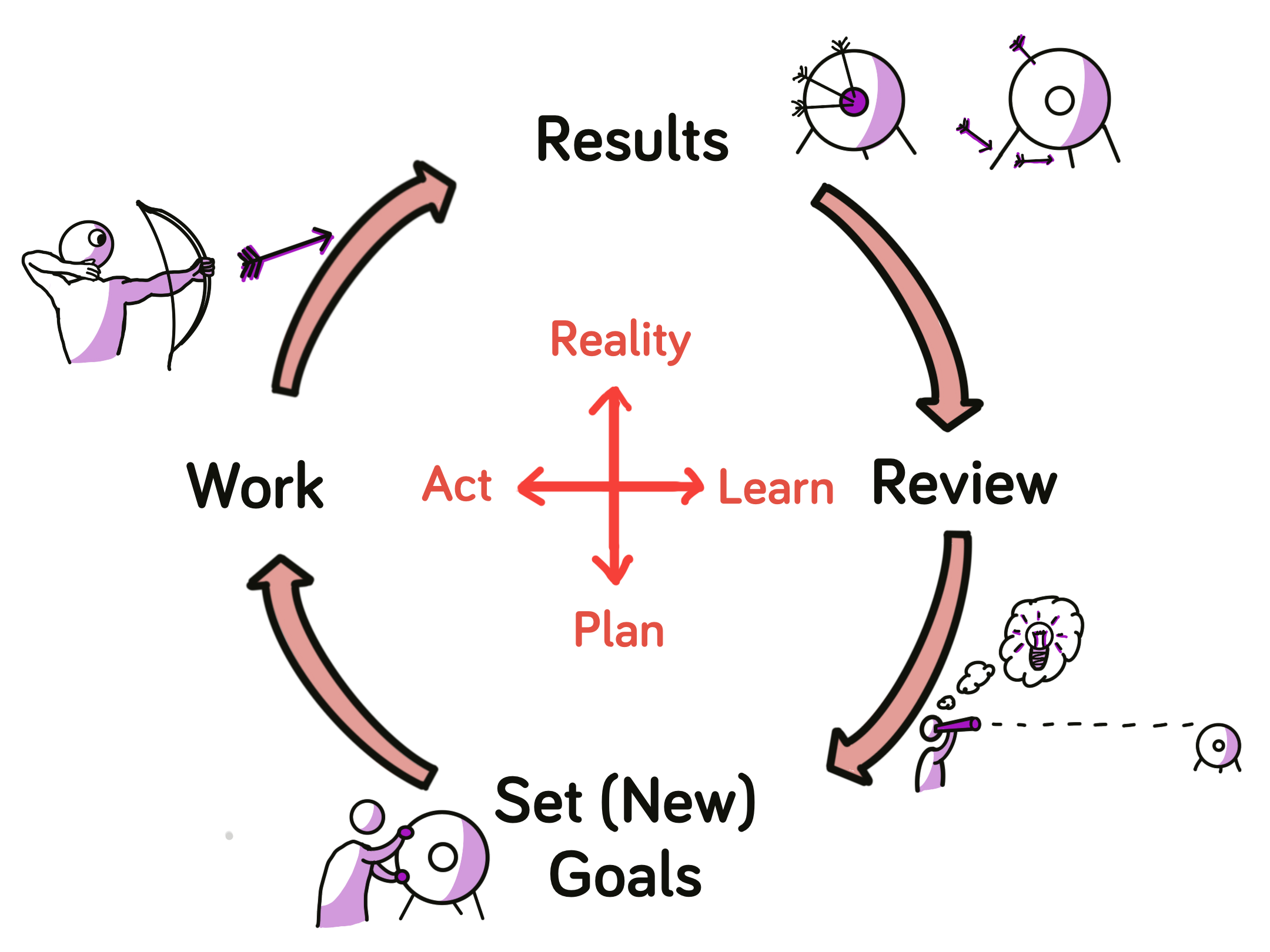True Aim
So ubiquitous we take them for granted, goals are all around us. Almost a rite of business in itself, we all aspire to hit our targets.
Since Peter Drucker's introduction of Management by Objectives (MBO), goals have remained a quintessential part of managing both people and projects, and understanding what specific qualities make quality goals is critical for managers:
Ask any experienced leader about their approach to objectives, and they will likely give you some variation of the infamous SMART Goals acronym. If you made it to this point in my post, chances are you are interested in goal setting and yourself have found these 5 aspects of quality objectives. We want our business objectives to be SMART:
SMART goal setting has become a stepping stone of myriad learning paths, especially in management training as it is seductively easy to apply.
While the strength of this model is the immediate applicability, the underlying wisdom that makes SMART effective is not so obvious, and rarely explored in training. To heighten our ability to set truly smart goals (and to know when to deviate from its SMART formula), we must understand the underlying mechanics of goal-setting that make SMART smart.
SMART describes two key aspects of effective managers: They both set the right goals and set their goals the right way.
Setting Goals the Right Way
A more approachable and straightforward quality of goals is that they can be failed. While that may sound trivial, this character of effective objectives can easily be overlooked:
Take for example "become the best-known company in the XYZ-Sector". While this sounds like a business objective, it's easy to poke holes into its effectiveness, for example:
- What exactly does it mean to be 'best-known'? Is it based on third-party consumer research? If we don't specify, it's easy to pick-and-choose statistics after the fact to match my narrative.
- How much time are you giving yourself to achieve this? If there's no deadline, one can always argue "we're well on our way", no matter what actions we have actually taken.
Ultimately, only goals that outline specific resources and actions leading to a measurable result within a clear time frame create an unambiguous fail condition.
Establishing and committing to fail conditions requires erfort. While failing to meet a goal is never comfortable, organizations with a healthy outlook on learning embrace unmet objectives as learning opportunities:

Especially in the entrepreneurial world, where rapid development and agile pivots are essential to survival, learning from - met and unmet - goals is a key skill and usually informs success more than product quality. Methodolgies like Eric Ries's Lean Startup embrace this, creating an even more disciplined approach towards business objectives as a growth and learning vehicle.
Together, goals that are specific, measurable, and time-bound are enablers of improvement, if we (and our organization) allow ourselves to learn from them. This view makes every single goal a microcosm for growth and realization.
Goals that adhere to these standards are managable, allowing skilled leaders to navigate even uncertain tasks across a team. Beyond manageability, however, we look for more in our goals, especially in those organizations that aim high.
Setting the Right Goals
What are your 'life goals'?
If your answer checks the boxes we discussed so far, chances are you will not find it the most rousing. A goal like "achieve a Net Promoter Score of 75 for new and existing customers by 2026" in its wording alone will likely not stir your soul or inspire you to do great by itself.
For this, we as humans usually look in places much further than our quarterly goals. Our intrinsic motivation can accept that not everything is time-bound, but it does need everything to make sense. This aspect of objectives, a synonym for the larger drive on the horizon, is often used in lieu of grand terms like purpose or vision.
Related to management goals, this aspect of a contributing to a larger mission not only drives individual motivation, it also ensures the organization is effective as a whole:
In addition to making our goals managable (i.e. specific, measurable, and time-bound), we want them to inspire action, not just demand it. A decent manager will set the goal with their team, a great manager will highlight how this goal serves something greater.
This is what it means for an objective to be relevant: It's a stepping stone towards the organization's ideals and (ideally) aligns individual motivation with long-term strategy.
In addition to grand purpose, our personal motivation also is affected by our psychology. We want our goals to stretch the organization, but remain realistic. A 'dead on arrival' goal that's so unrealistic that failure is to be expected can inspire despair instead of action. This aspect of 'fine-tuning' the metrics to be realistic while indicative of improvement is especially interesting, with many managers having their personal philosophy on how much to demand. Ultimately, we want our people to feel they can make this, that their goal is attainable.
We want our goals to hit that sweet spot:
While easy to overlook in their ubiquity, the goals we follow define our outlook. As anyone who experienced a meaningful shift in perspective can attest to, sometimes all it takes to achieve the 'impossible' is looking at the same task from a wholly different point of view.
The goals we follow define our efforts to achieve over long periods of time, and deserve our conscious effort when setting, reviewing, and realigning them as we keep working effectively towards our objectives and strive for greater heights.




